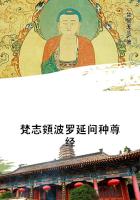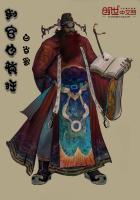Michael Angelo found that the ornamentations of the ancient temples were as rich and varied as those of Mediaeval churches. Mouldings were discovered of incomparable elegance; the figures on entablatures were found to be chiselled accurately from nature; the pillars were of matchless proportions, the capitals of graceful curvatures. He saw beauty in the horizontal lines of the Parthenon, as much as in the vertical lines of Cologne. He would not pull down the venerable monuments of religious zeal, but he would add to them. "Because the pointed arch was sacred, he would not despise the humble office of the lintel." And in southern climates especially there was no need of those steep Gothic roofs which were intended to prevent a great weight of rain and snow, and where the graceful portico of the Greeks was more appropriate than the heavy tower of the Lombards. He would seize on everything that the genius of past ages had indorsed, even as Christianity itself appropriates everything human,--science, art, music, poetry, eloquence, literature,--sanctifies it, and dedicates it to the Lord; not for the pride of builders, but the improvement of humanity. Civilization may exist with Pagani**, but only performs its highest uses when tributary to Christianity. And Christianity accepts the tribute which even Pagan civilization offers for the adornment of our race,--expelled from Paradise, and doomed to hard and bitter toils,--without abdicating her more glorious office of raising the soul to heaven.
Nor was Michael Angelo responsible for the vile mongrel architecture which followed the Renaissance, and which disfigures the modern capitals of Europe, any more than for the perversion of painting in the hands of Titian. But the indiscriminate adoption of pillars for humble houses, shops with Roman arches, spires and towers erected on Grecian porticoes, are no worse than schoolhouses built like convents, and chapels designed for preaching as much as for choral chants made dark and gloomy, where the voice of the preacher is lost and wasted amid vaulted roofs and useless pillars.
Michael Angelo encouraged no incongruities; he himself conceived the beautiful and the true, and admired it wherever found, even amid the excavations of ruined cities. He may have overrated the buried monuments of ancient art, but how was he to escape the universal enthusiasm of his age for the remains of a glorious and forgotten civilization? Perhaps his mind was wearied with the Middle Ages, from which he had nothing more to learn, and sought a greater fulness and a more perfect unity in the expanding forces of a new and grander era than was ever seen by Pagan heroes or by Gothic saints.
But I need not expatiate on the new ideas which Michael Angelo accepted, or the impulse he gave to art in all its forms, and to the revival of which civilization is so much indebted. Let us turn and give a parting look at the man,--that great creative genius who had no superior in his day and generation. Like the greatest of all Italians, he is interesting for his grave experiences, his dreary isolations, his vast attainments, his creative imagination, and his lofty moral sentiments. Like Dante, he stands apart from, and superior to, all other men of his age. He never could sport with jesters, or laugh with buffoons, or chat with fools; and because of this he seemed to be haughty and disdainful. Like Luther, he had no time for frivolities, and looked upon himself as commissioned to do important work. He rejoiced in labor, and knew no rest until he was eighty-nine. He ate that he might live, not lived that he might eat. For seventeen years after he was seventy-two he worked on St. Peter's church; worked without pay, that he might render to God his last earthly tribute without alloy,--as religious as those unknown artists who erected Rheims and Westminster. He was modest and patient, yet could not submit to the insolence of little men in power. He even left the papal palace in disdain when he found his labors unappreciated. Julius II. was forced to bend to the stern artist, not the artist to the Pope. Yet when Leo X. sent him to quarry marbles for nine years, he submitted without complaint. He had no craving for riches like Rubens, no love of luxury like Raphael, no envy like Da Vinci. He never over-tasked his brain, or suffered himself, like Raphael,--who died exhausted at thirty-seven,--to crowd three days into one, knowing that over-work exhausts the nervous energies and shortens life. He never attempted to open the doors which Providence had plainly shut against him, but waited patiently for his day, knowing it would come; yet whether it came or not, it was all the same to him,--a man with all the holy rapture of a Kepler, and all the glorious self-reliance of a Newton. He was indeed jealous of his fame, but he was not greedy of admiration. He worked without the stimulus of praise,--one of the rarest things,--urged on purely by love of art. He loved art for its own sake, as good men love virtue, as Palestrina loved music, as Bacon loved truth, as Kant loved philosophy,--satisfied with itself as its own reward. He disliked to be patronized, but always remembered benefits, and loved the tribute of respect and admiration, even as he scorned the empty flatterer of fashion. He was the soul of sincerity as well as of magnanimity; and hence had great capacity for friendship, as well as great power of self-sacrifice. His friendship with Vittoria Colonna is as memorable as that of Jerome and Paula, or that of Hildebrand and The Countess Matilda. He was a great patriot, and clung to his native Florence with peculiar affection.















